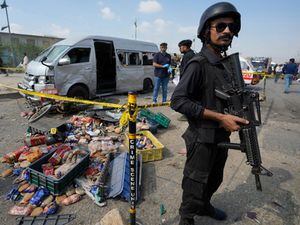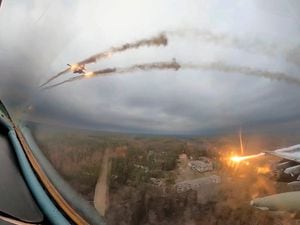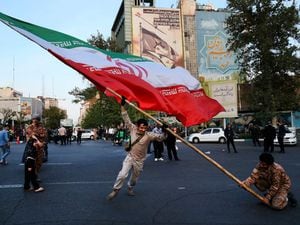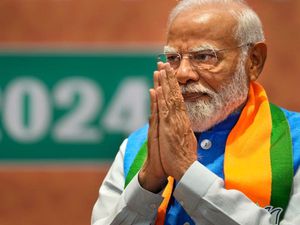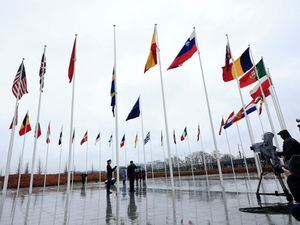Turkish leader calls early poll in move to consolidate his position
Recep Tayyip Erdogan, who survived a failed coup in 2016, is set to accrue more powers with changes coming into effect after the election.
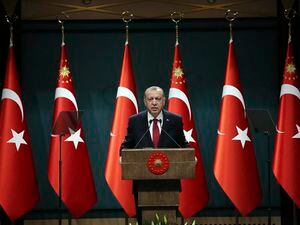
Turkey’s President Recep Tayyip Erdogan has called early elections for June in a move that would see him consolidate powers if he wins.
The country is moving to a new political system moving more powers from parliament to the presidency with the measures due to take effect after the next poll.
After a meeting with Devlet Bahceli, the leader of Turkey’s main nationalist party, Mr Erdogan announced that the presidential and parliamentary elections originally scheduled for November 2019 will now be held June 24.
He said the new system needs to be implemented quickly in order to deal with numerous challenges ahead, including Turkey’s fight against Kurdish insurgents in Syria and Iraq.
Turkey is switching from a parliamentary system to a presidential system that abolishes the office of the prime minister and decreases the powers of the parliament, following a narrowly approved referendum last year.
“Be it the cross-border operations in Syria, or incidents of historic importance centred in Syria and Iraq, they have made it imperative for Turkey to overcome uncertainties quickly,” Mr Erdogan said, in apparent reference to the aspirations for independence by Kurds in both countries.
Mr Erdogan said: “Switching to a new system of government has increasingly gained urgency so that decisions regarding our country’s future can be made and implemented with greater strength.”
The snap elections were called a day after Mr Bahceli, the leader of the Nationalist Movement Party and an Erdogan ally, made a surprise call for an early election in the summer.

Mr Erdogan, who has moved to further tighten his grip on power since a failed coup attempt in 2016, needs a 51% majority to be re-elected in the first round of the presidential election.
Earlier this year, his ruling conservative, Islamic-rooted Justice and Development party formed an election alliance with Mr Bahceli’s MHP.
Nationalist sentiment is running high over Turkey’s recent military operation in Syria, which ousted Syrian Kurdish forces from a northern enclave.
Ankara has labelled the Syrian Kurdish fighters as terrorists because of their affiliation with outlawed Kurdish rebels fighting inside Turkey.
Although caught off-guard, opposition parties said they were ready for the early election.

In a related development, Turkey’s parliament voted on Wednesday to prolong a state of emergency that was declared after the failed coup.
The state of emergency was extended for a seventh time, despite calls for its end.
It allows the government to rule by decrees, often bypassing parliament.
The decrees have allowed the government to close down media outlets and non-governmental organisations.
The European Union, which Turkey seeks to join, says the country is backsliding on bringing its laws in line with EU standards and has called for the country to lift its state of emergency.
Last month, a UN report concluded that Turkey’s state of emergency had led to human rights violations, including arbitrary detentions and dismissals, torture and ill-treatment.
Turkey’s main opposition party accuses the government of misusing its emergency powers to erode democracy and arrest government critics.
Its supporters have staged sit-in protests this week across Turkey to demand an end to the emergency declaration.
The government argued that security threats from a movement led by US-based cleric Fethullah Gulen, whom Turkey accuses of masterminding the coup, have not abated.
It also cites Turkey’s continued struggle against Kurdish rebels and other groups.
Mr Gulen has denied any ties to the failed coup.

